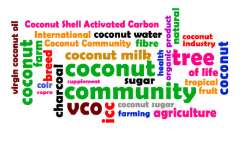Formulation and Acceptability of Sports Drinks using Fruit Juices and Tender Coconut Water
Abstract
The aim of the study is to formulate sports drinks using fruit juices and tender coconut water and to test their organoleptic acceptability. Sports drinks were developed using sweet lime juice (F1), lime juice (F2), pineapple juice (F3) and tender coconut water (F4) blended with honey, salt and water. The prepared sports drinks were calculated for their nutrient content and organoleptically evaluated using a 5 point hedonic scale. The energy content of F4 was the highest (68.3 Kcal/100 ml), followed by F1 (65.35 Kcal/100 ml) and F3 had the lowest value of 54.9 Kcal/100 ml. The iron content of F3 was the highest (1.2 mg %). The amount of sodium and potassium of F1 was high (237.1 and 245.78 mg %) and almost equal in quantity. The sodium content of F3 was highest (301.05 mg %) followed by F4 (289.6 mg %) and F2 (473.8 mg %). The potassium content of F3 was the least (47.38 mg %), while that of F2 and F4 was 140.19 mg % and 128.69 mg % respectively. The mean scores obtained for overall acceptability was 3.5±0.7, 3.1±0.7, 4.2±0.6 and 4.6±0.5 for F1, F2, F3, F4 respectively. F3 and F4 obtained a mean score of more than 4.0 for taste and overall acceptability. Results of ANOVA indicate no significant difference for colour, appearance and flavour (p≥0.05) between the four variants whereas it was significant for texture, taste and overall acceptability (p≤0.05). The formulated sports drinks contribute to the nutrient requirement of the athletes. On comparing the costs of all the formulated sports drinks, F4 (sports drink made from tender coconut water) was found to be more cost effective and had less food wastage. It may be concluded that sports drink prepared with tender coconut water (F4) being highly acceptable and cost effective can be recommended for athletes for optimal performance.
References
Aragão, WM. Aimportância do coqueiro-anão verde. Links: http://www21.sede. embrapa.br/noticias/ artigos/ 2000/ artigo. 2004-12-07. 2461636373/ mostra_artigo. Accessed on: 9/2/2017
Beck, L Kathryn; Thomson, S Jasmine; Swift, J Richard; Von Hurst, R Rameela, 2015. “Role of nutrition in performance enhancement and post exercise recovery”, Vol (6), pp-259-267.
Ferraz, LGB, Fonseca, MAC, Freitas, EV. IPA responde. Coqueiro. www.ipa.br/RESP/ resp42.htm. Accessed on: 9/2/2017.
Ganguly, Subha; Roy, Satpura, 2015. “Medicinal Plants and Herbs: A Review”, Vol 6(3), pp: 4288-4290.
Gopalan, C; Sastri, B.V. Rama; Balasubramanian, S.C, 2011. ”Nutritive Value of Indian Foods”.
Kalman, Douglas S; Feldman, Samantha., Krieger, Diane R; and Bloomer, J Richard, 2012. “Comparison of coconut water and a carbohydrate-electrolyte sport drink on measures of hydration and physical performance in exercise-trained men”, J Int Soc Sports Nutr; 9: 1.
Mishra, Sunidhi; Agrahari, Kiran; Shah, K Dharti, 2017. ”Intervention and Effect of Coconut Water On Dengue Patients ”Vol (4), pp: 2394-4404.
Omale, JA; Omale, A; and Olupinyo, O, 2016. “Proximate analysis, Phytochemical Screening and supported by Physicochemical properties of cocos nucifera oil extract”, Vol (1), pp: 363-366.
Sawka MN, Burke LM, Eichner ER, Maughan RJ, Montain SJ, Stachenfeld NS, American College of Sports Medicine American College of Sports Medicine position stand. Exercise and fluid replacement. Med Sci Sports Exerc. 2007; 39(2): 377-390.
Shirreffs, S. M, 2009. “Hydration in sport and exercise: water, sports drinks and other drinks”. Vol (34), Issue 4, pp: 374-379.











